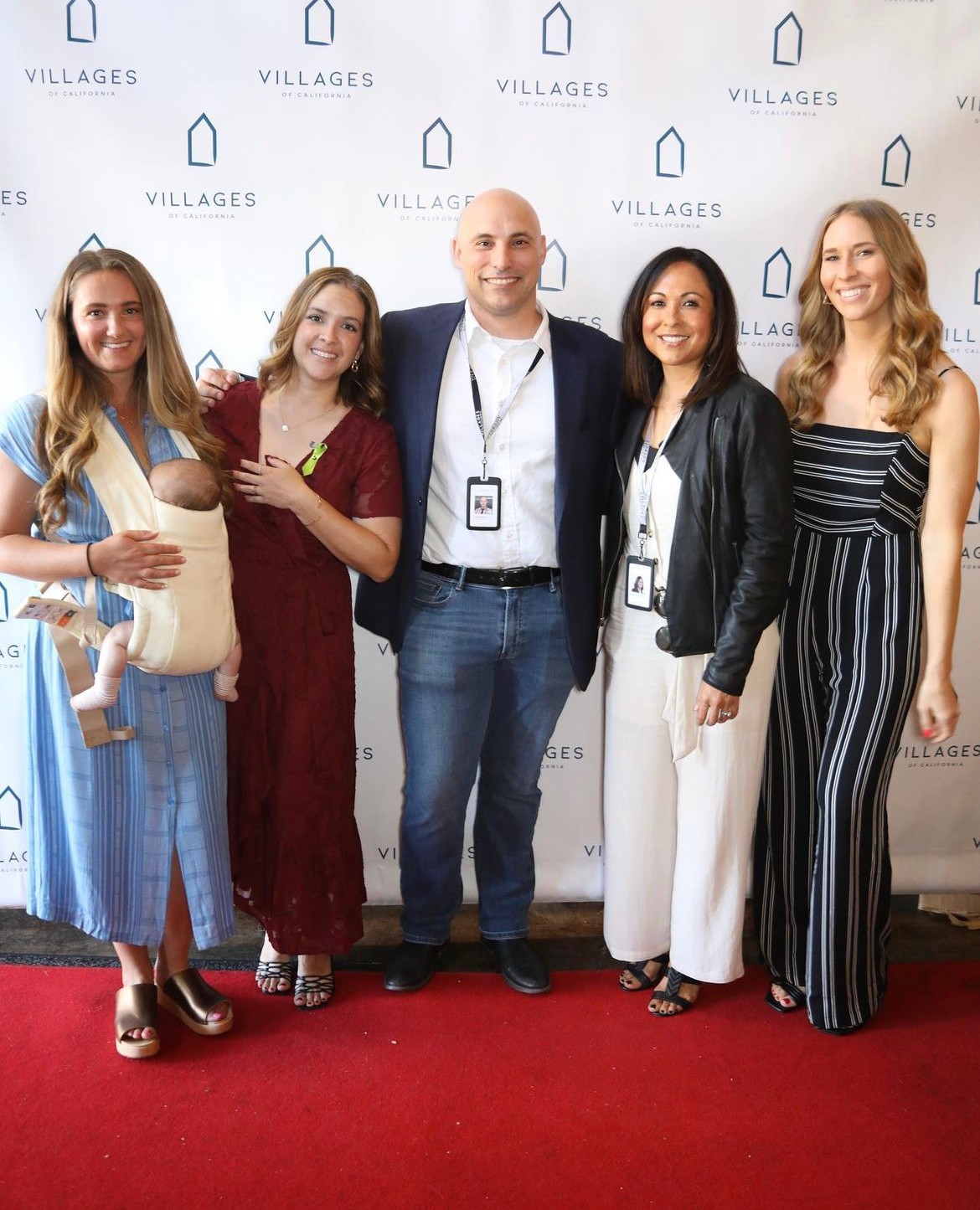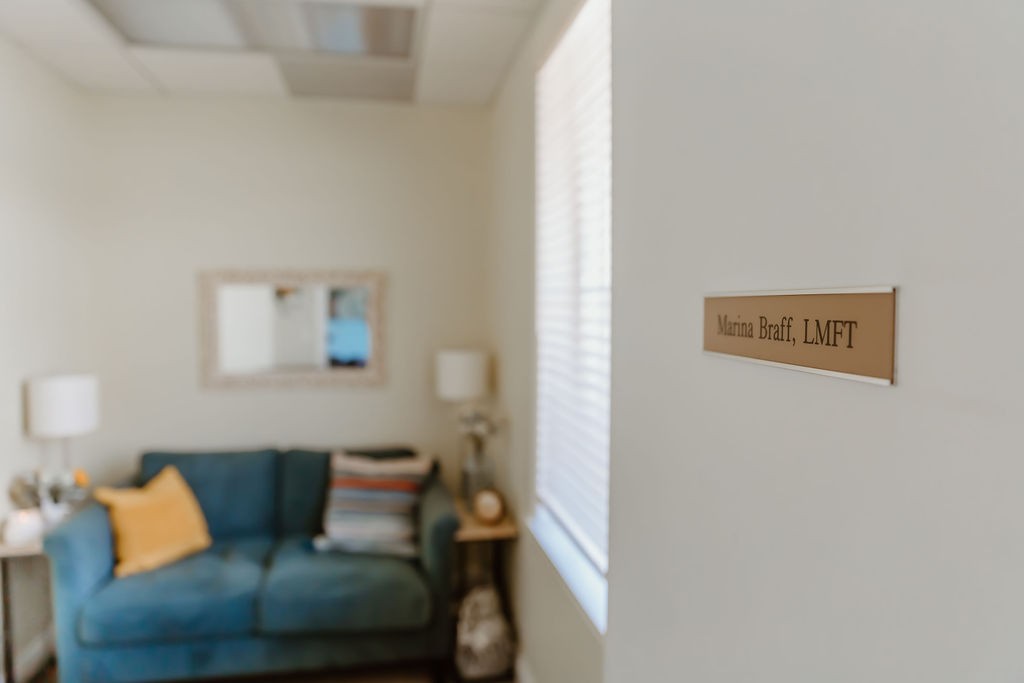We’re excited to introduce you to the always interesting and insightful Marina Braff. We hope you’ll enjoy our conversation with Marina below.
Marina , looking forward to hearing all of your stories today. Have you ever experienced a times when your entire field felt like it was taking a U-Turn?
Here we are in 2023, just a little over 3 years since the whole world experienced a drastic U-turn. COVID was responsible for such drastic changes- both in peoples’ personal lives and in their professional worlds. In early March 2020, I have distinct memories of sessions with clients in the office processing the uncertainty of what could be coming; the fear that many were experiencing and how to navigate some of the smaller, seemingly insignificant questions– do I shake the hands of my clients’ parents or do I give a simple nod and smile when I meet them for the first time?
Fast forward two weeks and there I was downloading Zoom, learning how to use the features through Pepperdine University’s tech department as they prepared me to start teaching a grad class online. I reached out to clients letting them know that we would still be able to talk but it would be through a computer lens. My clients had the unique challenge of how they would carve out a private space in their full homes so they could still be open enough about they were actually feeling.
I have been in private practice for eight years. 2020 and 2021 were my busiest yet. Everyone was scared and those Zoom sessions were a space to ask the questions and voice the concerns that many were afraid to say out loud to their loved ones. As the infection rates went down, I became curious as to how many would want to go back to the office. The answer- not many. Out of a full practice only a handful missed the in-person relatability.
In speaking with colleagues, this seemed to be a pattern. Many of us were getting out of leases and opting to invest in standing desks, ergonomic desk chairs and learning the beauty of a blurred background on Zoom and other Telehealth platforms. The separation from work and home became less distinct and clients became more comfortable with the normal, ongoing background sounds of our home and were eager to show us their furry friends on camera.
And now here we are- Telehealth is considered a viable option for therapy. Many elect to see their therapist from the comfort of their home instead of making the drive to the office. And while the process of getting this to be an option was filled with years of uncertainty, chaos, loss and dramatic increases in mental illness, we are now living in a world where seeking help has become more accessible and provides both the therapist and clients with another level of flexibility and real-ness.



As always, we appreciate you sharing your insights and we’ve got a few more questions for you, but before we get to all of that can you take a minute to introduce yourself and give our readers some of your back background and context?
Hi! I’m Marina and I am a Licensed Marriage and Family Therapist. I’ve had a private practice in the South Bay for the last six years. From the beginning I have worked primarily with teen girls and young adults who have struggled with anxiety, depression, disordered eating and navigating life transitions. I’m excited to share that since becoming a mom in April to my beautiful baby boy, I have decided to expand my area of expertise and will be completing the certification through Postpartum Support International in order to become a certified Perinatal Mental Health clinician.
My practice was built on a variety of community events and presentations done at schools, charitable organizations and corporations on topics ranging from “Teens and Technology,” to “Work-Life Balance.” I hosted self-care events at local breweries and provided women with an opportunity to connect and have scheduled time to do something for themselves.
Since then, my growth has allowed me to take on associates who are working on their hours, with the goal of establishing their own private practice. Being able to guide and mentor these women has been immensely rewarding. I was fortunate enough to have had great guidance in my early years and I look forward to seeing how they will continue to support their community.
Additionally, my husband, friend and I started a community-based mental health organization, Villages of California (VOC). We are dedicated to providing youth and young adults with a team of mental health professionals working in collaboration with families, school and community providers to address mental health and behavioral challenges.
We contract with school districts across California to provide therapy to students on campus, offer support to the families in their homes and create events to de-stigmatize mental health. Additionally, we work with local food banks, laundromats and other organizations in order to ensure that our families have their basic needs met. We understand that until that is addressed, their mental health will continue to suffer. I am the Clinical Director for VOC and work alongside our leadership team to ensure that our staff receive the highest level of training and quality supervision while they work towards completing their hours. When I hear about the work that our team is doing, I start beaming with pride and feel grateful to be a part of an organization that sees the struggles for what they are and is able to provide tangible resources that provide immediate relief to our families.



Other than training/knowledge, what do you think is most helpful for succeeding in your field?
Patience. Rome wasn’t built in a day. It takes time to build a successful practice. Often times people think that they can create a PsychologyToday profile, make a website and get on social media and POOF. A thriving practice will appear. In reality, it takes time networking with the right people, getting in front of the clients that you want to work with and trusting that the right referrals will come. In addition to patience and trust, you need persistence. The waiting period can be anxiety-inducing. Thoughts of self-doubt can become pervasive. Make sure you surround yourself with other clinicians who have succeeded in their field and do what you can to stay grounded in your abilities, value and worth as a clinician.
How’d you build such a strong reputation within your market?
There is an abundance of wonderful clinicians in the South Bay and across the state. Building a reputation to stand out was something that I had to give a lot of thought to. Being authentic with my clients and when I am out in the community allowed me to be relatable to the people I was helping and the professionals that were sending referrals. This ability to be myself allowed others to feel safe enough to do the same and confident that in sending me clients I would provide a space where they would be able to get comfortable doing so as well. Additionally, as I was building my business I wanted people to be able to experience me- to see how I comport myself outside of the office so they could get a sense for how I would be in one-on-one work together. In order to do this I would looked for opportunities where I could meet with parents at schools, hear more about what types of information they were craving and then sought out ways to share. Having a finger on the pulse of the community you serves ensure that your messaging and resources are targeted and intentional.
Contact Info:
- Website: www.marinabraff.com
- Instagram: marina_braff
- Linkedin: https://www.linkedin.com/in/marina-braff-lmft-971484104/
- Other: https://villagesofca.com
Image Credits
Casey Figlewicz, Luck Pho, Elizabeth Carnine


